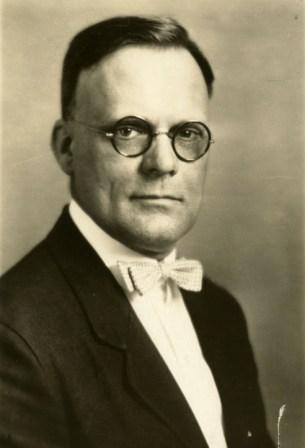History of the Provost’s Position at Johns Hopkins University
In December 1923, the Johns Hopkins University Board of Trustees authorized President Frank J. Goodnow to “secure the services of Charles K. Edmunds, an alumnus of the University.” While no official authorization for the position of provost can be found, Edmunds is referred to as provost in early newspaper accounts and appears to have been the first person to use that title.
In May 1928, the Trustees specified that the provost was “to assist the President in the preparation of the budget and to perform such other duties as may be delegated to him by the President.” By the mid-1930s records indicate that the provost had become the chief academic officer of the university.
During the search for Provost William Bevan’s successor in 1970, the search committee reviewed and redefined the position. President Lincoln Gordon advocated dropping the title “provost” entirely, preferring the title of senior vice president. Gordon also spelled out the duties of the position as follows:
- The Vice President is to be the second ranking officer of the University, who will function as Acting President during the President’s absence or illness. He will be expected generally to complement the President in function and activities and share the President’s duties in external as well as internal relationships. He will have special responsibilities to coordinate the work of the academic Deans, the Vice President for Administration, and other officers with line responsibilities in the formulation and review of the University budget…. He will take leadership in continuing long-range planning of University activities and assuring the proper relationship between operating budgets and long-range plans. (Minutes of the Board of Trustees, October 19, 1970)
In 1988, President Steven Muller announced that he would be devoting the majority of his time to fundraising. As a result, the Trustees approved conferring the duties of chief operating officer on the provost giving him responsibility for all day-to-day operations of the University in addition to academic affairs.

